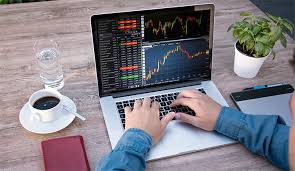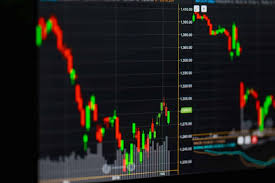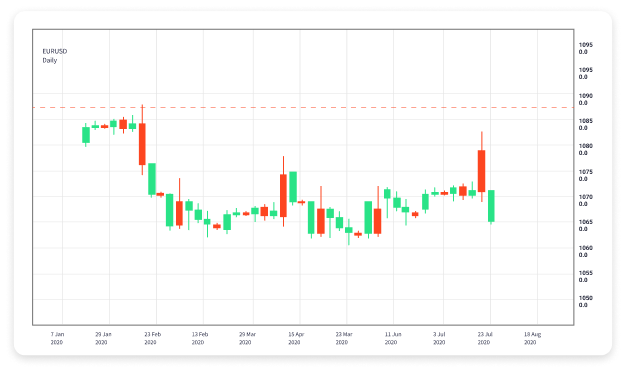
Choosing the Right Forex Currency Trading Broker
In the fast-paced world of forex currency trading, selecting the right broker can be the key to unlocking your trading potential. With a plethora of options available in the market, it can be overwhelming for both novice and experienced traders to determine which broker best suits their needs. Whether you are trading as a hobby or as a full-time profession, understanding the essential criteria for choosing a forex broker is crucial. This article will guide you through the significant factors to consider, ensuring that you make an informed decision. Don’t forget to check out forex currency trading broker protradinguae.com for additional insights and resources.
Understand the Basics of Forex Trading
Forex, short for foreign exchange, is a decentralized global market where currencies are traded. As the largest financial market in the world, it operates 24 hours a day, catering to traders from various time zones. Understanding how forex trading works is the first step to successful trading. This includes familiarizing yourself with trading pairs, currency quotes, pips, and leverage, among other concepts.
Regulation and Licensing
When selecting a forex broker, regulatory compliance should be at the top of your checklist. Regulation ensures that the broker operates under strict standards set by financial authorities, safeguarding your funds and trading activities. Look for brokers regulated by well-known agencies such as the Financial Conduct Authority (FCA) in the UK, the Commodity Futures Trading Commission (CFTC) in the US, or the Australian Securities and Investments Commission (ASIC). A regulated broker not only demonstrates legitimacy but also offers a level of investor protection.
Trading Platforms
The trading platform is where all the action happens, and it is essential to choose a broker that provides a reliable and user-friendly platform. Most brokers offer popular platforms like MetaTrader 4 (MT4), MetaTrader 5 (MT5), or proprietary trading platforms. Evaluate the platform’s interface, the tools available for analysis (charts, indicators), and its overall performance. A good platform should also be accessible across different devices, including desktop and mobile.

Account Types and Minimum Deposits
Forex brokers offer various account types tailored to different trader profiles. These can range from standard accounts to more specialized accounts designed for professionals or those who trade on margins. Pay attention to the minimum deposit requirements, as they vary significantly among brokers. Make sure that the required minimum deposit aligns with your trading strategy and budget. Some brokers might offer demo accounts, which can be beneficial for practicing before investing real money.
Spreads and Commissions
Understanding the costs associated with forex trading is vital. Brokers make money through spreads and commissions. The spread is the difference between the buying and selling price of a currency pair and can vary depending on market conditions. Some brokers offer fixed spreads, while others may provide variable spreads. Take the time to compare costs among different brokers, as even a slight difference can significantly impact your overall profitability in the long run.
Leverage Options
Leverage allows traders to control a larger position with a smaller amount of capital. While leverage can amplify potential profits, it also increases the risk of significant losses. Different brokers provide varying levels of leverage, so it is essential to choose one that offers leverage options suitable for your trading strategy. Be cautious and make sure to understand the implications of trading on margin.
Customer Support
Reliable and accessible customer support is another critical factor when selecting a forex broker. Traders often face issues requiring prompt responses, whether it’s a technical challenge or a query about transactions. It is advisable to evaluate the broker’s support options, such as live chat, email, and phone support. Consider the response times and the availability of support across different time zones. A broker that provides excellent customer service can enhance your trading experience.

Research Tools and Educational Resources
Many brokers provide educational resources and research tools to help traders improve their knowledge and skills. These can include webinars, tutorials, market analyses, and economic calendars. A broker that invests in your education will not only aid you in developing your trading skills but also helps you make informed trading decisions.
Withdrawal and Deposit Methods
Different brokers offer various methods for depositing and withdrawing funds. Look for a broker that provides a range of convenient payment options, including bank transfers, credit/debit cards, and e-wallets. Also, check any fees associated with deposits and withdrawals, as well as the processing times, which can affect your trading activities.
User Reviews and Reputation
Before finalizing your choice of a forex broker, it can be immensely beneficial to research user reviews and feedback. Trusted review platforms and online trading forums can provide insights into the experiences of other traders with specific brokers. Pay attention to recurring themes in reviews, whether positive or negative, as they can indicate the reliability and transparency of the broker.
Conclusion
Choosing the right forex currency trading broker is a pivotal decision in your trading journey. By considering factors such as regulation, trading platforms, account types, fees, customer support, and educational resources, you can find a broker that aligns with your trading style and objectives. The forex market offers exciting opportunities, but a well-informed choice of broker can significantly impact your success. Remember to take your time, conduct thorough research, and stay informed about the forex industry to maximize your trading potential.
